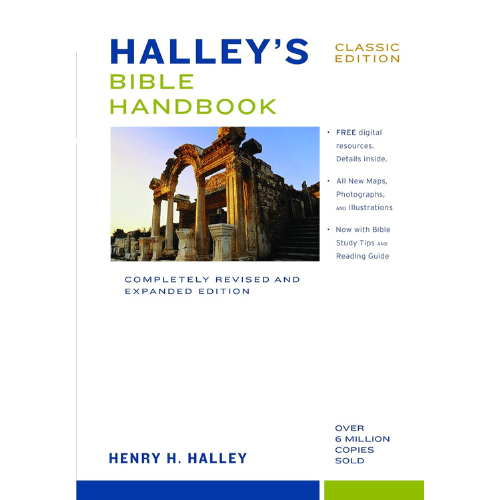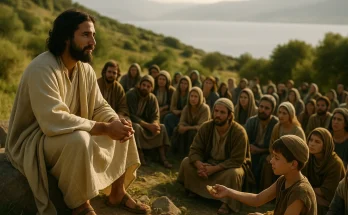What happens when nations turn away from God, yet He still speaks through His chosen messengers? Second Kings reveals the answer. This book chronicles the spiritual decline of Israel and Judah, marked by rebellion, idolatry, and political chaos. Yet amid this turmoil, God’s power shines through the words and deeds of His prophets. From the miraculous ministry of Elisha to the warnings of coming judgment, Second Kings showcases a God who does not abandon His people but continually calls them back to Himself.
Through dramatic stories of divine intervention, such as the fiery chariot, the healing of Naaman, and the miraculous provision of oil, we witness God’s unwavering sovereignty. The book challenges us to recognize His power at work in the midst of human frailty. As we journey through Second Kings, we are invited to see the profound ways God uses faithful individuals to accomplish His purposes, offering lessons of hope, repentance, and reliance on Him.
Writer of Second Kings
The authorship of Second Kings remains uncertain, though it is traditionally attributed to the prophet Jeremiah. While there is no direct evidence linking Jeremiah to the text, the book’s themes of judgment, exile, and hope align closely with his prophetic message. Scholars widely believe that Second Kings was compiled by a prophetic historian or group of scribes, possibly during or shortly after the Babylonian exile.
This careful compiler drew from earlier records, such as royal annals, prophetic writings, and oral traditions, to create a cohesive account of Israel and Judah’s history. The detailed focus on prophetic activity, particularly the ministries of Elijah and Elisha, reflects the writer’s deep theological perspective on God’s sovereignty and covenant faithfulness.
Although the human author remains unnamed, Second Kings unmistakably bears the marks of divine inspiration. The book serves as both a historical record and a theological reflection, offering future generations a powerful testimony of God’s actions through His chosen servants during a time of national upheaval and spiritual decline.
Date Written
The book of Second Kings was likely written between 561–538 B.C., during or shortly after the Babylonian exile. This period was a time of deep reflection for the Israelites, as they grappled with the consequences of their covenant unfaithfulness. The text captures the events leading to the fall of the Northern Kingdom (Israel) to Assyria in 722 B.C. and the Southern Kingdom (Judah) to Babylon in 586 B.C.
The final verses of Second Kings mention the release of King Jehoiachin from prison in Babylon, which occurred around 561 B.C. This suggests that the book was completed after this event, possibly during the exile. The Babylonian captivity provided a unique lens for interpreting the history of Israel and Judah, emphasizing God’s justice, mercy, and sovereignty.
The writer of Second Kings compiled the events to offer both a historical record and a theological explanation of Israel’s downfall. This reflective tone points to its purpose: to call the exiles to repentance, encourage faith in God’s promises, and inspire hope for restoration.
To Whom Written
The book of Second Kings was written primarily to the exiled Israelites living in Babylon. Facing the devastating loss of their homeland, temple, and national identity, the exiles were left to wrestle with questions of faith, purpose, and God’s covenant promises. This audience was in desperate need of understanding the reasons behind their predicament and finding hope for the future.
Second Kings provides a sobering account of Israel and Judah’s history, highlighting their repeated covenant unfaithfulness, the consequences of idolatry, and their refusal to heed God’s prophets. By recounting these events, the book aimed to awaken the exiles to their shared responsibility for the nation’s downfall while also affirming God’s justice and mercy.
At its core, Second Kings was written to encourage repentance and inspire renewed faith in God. It reminded the Israelites that, despite their failures, God remained faithful to His promises. The prophetic narratives within the book emphasized His power, sovereignty, and willingness to restore His people if they turned back to Him.
Purpose of Second Kings
The purpose of Second Kings is to document the spiritual and political decline of Israel and Judah while demonstrating God’s unwavering faithfulness. As the kingdoms fell deeper into idolatry and rebellion, the book illustrates the inevitable consequences of breaking the covenant with God. Through detailed accounts of kings, nations, and prophets, it offers a sobering narrative of judgment tempered by glimpses of hope.
Central to Second Kings is the role of prophets as God’s messengers. Elijah and Elisha, among others, served as pivotal figures, calling the people and their leaders back to repentance and obedience. Their miracles, warnings, and acts of faith reveal God’s persistent desire to restore His wayward people.
Ultimately, Second Kings reminds readers that God’s promises endure despite human failure. It underscores His sovereignty over history, the certainty of His judgments, and His commitment to preserving a remnant. The book serves as both a warning and an encouragement, urging readers to trust in God’s power and return to Him with wholehearted devotion.
Historical Context of Second Kings
The book of Second Kings spans approximately 300 years, from 850–586 B.C., documenting a turbulent period in the history of Israel and Judah. This era witnessed the spiritual decline and eventual collapse of both kingdoms, marked by idolatry, political instability, and the rejection of God’s covenant.
The Northern Kingdom, Israel, dominated much of the early narrative, highlighting the ministries of prophets like Elijah and Elisha. Despite their powerful warnings and miraculous acts, Israel persisted in its rebellion, culminating in its conquest by Assyria in 722 B.C. This catastrophic event serves as a stark reminder of the consequences of abandoning God’s ways.
Meanwhile, the Southern Kingdom, Judah, fared no better in the long run. Although it experienced brief periods of reform under kings like Hezekiah and Josiah, the nation ultimately fell to Babylon in 586 B.C. Jerusalem was destroyed, and the people were taken into exile, fulfilling the prophetic warnings of judgment.
Second Kings reflects a time when the people of God were forced to confront the consequences of their choices. By recording these events, the book offers timeless lessons on God’s justice, mercy, and sovereignty, reminding future generations of the need for faithfulness and repentance.
Key Themes in Second Kings
The Book of Second Kings presents a rich tapestry of themes that highlight God’s character, human responsibility, and the tension between judgment and restoration. These themes are woven through the narratives of kings and prophets, offering timeless lessons for readers.
God’s Sovereignty Over Nations and Kings
The Book of Second Kings emphasizes God’s ultimate authority over nations and rulers. Despite the political intrigues and military conflicts depicted, the text makes clear that God orchestrates history according to His divine will. The rise and fall of kingdoms, including the destruction of Israel by Assyria and Judah by Babylon, demonstrate that no earthly power operates outside God’s control. Kings may wield authority, but their actions are subject to the sovereign purposes of the Lord.
The Consequences of Covenant Disobedience
A major theme in the Book of Second Kings is the devastating impact of breaking God’s covenant. Both Israel and Judah consistently turned to idolatry and ignored the warnings of prophets, leading to their eventual downfall. The exile of both nations serves as a powerful reminder that disobedience to God’s commands brings judgment, just as He promised through Moses.
The Power of God Demonstrated Through His Prophets
Prophets play a central role in the Book of Second Kings, revealing God’s power and His desire for His people to return to Him. Elisha’s ministry, in particular, is marked by miraculous events that demonstrate God’s compassion and authority. From raising the dead to multiplying resources, these acts highlight that God is present and active, even amid human failure. The prophets’ words and deeds underscore God’s ongoing call for repentance and faith.
The Hope of Restoration Despite Judgment
While judgment is a dominant theme, the book of Second Kings also offers hope for restoration. The survival of a faithful remnant and the eventual release of King Jehoiachin (2 Kings 25:27-30) serve as glimmers of hope, pointing to God’s enduring covenant promises. These elements remind readers that, even in the darkest times, God remains faithful and offers a path to redemption for those who turn back to Him.
The book of Second Kings challenges us to see God’s hand in history, the seriousness of sin, and the boundless hope found in His faithfulness and mercy.
Major Events/Stories
The book of Second Kings recounts significant events that shaped the spiritual and political history of Israel and Judah. These stories reveal God’s involvement in the lives of His people through miracles, reforms, and judgments.
Elisha’s Ministry: Miracles, Guidance, and Warnings
Elisha’s ministry is one of the most remarkable features of Second Kings. Following Elijah’s ascension to heaven, Elisha continues the prophetic mission, performing extraordinary miracles. These include multiplying a widow’s oil, raising the Shunammite’s son, healing Naaman of leprosy, and causing an ax head to float. Through his actions and words, Elisha provides guidance to kings, offers hope to the faithful, and warns of impending judgment for those who reject God’s commands.
The Fall of Israel to Assyria
Chapter 17 of Second Kings marks a pivotal moment: the fall of the Northern Kingdom, Israel. Persistent idolatry, disobedience, and refusal to heed the prophets led to Assyria’s conquest in 722 B.C. The Assyrians deported many Israelites, scattering them throughout their empire, effectively ending Israel as a nation. This event underscores the severe consequences of covenant unfaithfulness.
Hezekiah’s Reforms and Miraculous Deliverance
Hezekiah, king of Judah, stands out as a beacon of faith and reform (2 Kings 18–20). He removes idols, restores worship of Yahweh, and seeks God’s guidance in times of crisis. When faced with a siege by Assyria, Hezekiah prays earnestly, and God miraculously delivers Judah by sending an angel to destroy the Assyrian army. His life is also marked by God’s miraculous extension of his reign after a life-threatening illness.
Josiah’s Reforms and Rediscovery of the Law
King Josiah’s reign (2 Kings 22–23) is another highlight of Second Kings. During temple renovations, the Book of the Law is rediscovered, prompting Josiah to lead sweeping religious reforms. He renews the covenant, destroys pagan altars, and reinstitutes proper worship practices. His actions briefly restore Judah’s spiritual integrity, demonstrating the power of repentance and obedience.
The Fall of Judah to Babylon
The tragic conclusion of Second Kings is the fall of Judah to Babylon in 586 B.C. Jerusalem is destroyed, the temple is burned, and the people are taken into exile. This event fulfills prophetic warnings and marks the end of the monarchy.
These events highlight God’s justice, mercy, and unwavering sovereignty over His people.
Halley’s Bible Handbook, Classic Edition
The bestselling Bible handbook of all time with millions of copies sold, the Halley’s Bible Handbook makes the Bible’s wisdom and message accessible to everyone.
Theological Contributions
The book of Second Kings offers profound theological contributions that reveal the character and purposes of God. Central to its message is God’s justice in responding to persistent sin and idolatry. Both Israel and Judah repeatedly turned from Him, worshiping false gods and rejecting His commands. The fall of the Northern Kingdom to Assyria and the Southern Kingdom to Babylon are vivid illustrations of the consequences of breaking the covenant. These events affirm that God’s judgments are not arbitrary but are rooted in His holiness and the stipulations of His covenant with His people.
Despite the focus on judgment, Second Kings also highlights God’s faithfulness in preserving a remnant. Even as the kingdoms fell, God ensured that a faithful few would survive, carrying forward His promises. This preservation reflects His commitment to the covenant and His ultimate plan for redemption through the lineage of David.
The role of prophets is another key theological element in Second Kings. Prophets like Elijah and Elisha served as God’s mouthpieces, performing miracles, delivering warnings, and offering hope. Through them, God’s character—His power, compassion, and sovereignty—is revealed. These theological contributions demonstrate that while God judges sin, His mercy and faithfulness endure for those who turn to Him.
Special Consideration in Second Kings
The ministry of Elisha in Second Kings is a unique and powerful element that deserves special consideration. His life and work underscore God’s ongoing presence and activity among His people, even in a time of national spiritual decline. Through Elisha, God demonstrates His power and compassion in extraordinary ways, performing miracles that directly impact individuals, communities, and even entire nations.
From multiplying a widow’s oil to raising the Shunammite woman’s son, Elisha’s acts of compassion highlight God’s care for the vulnerable and marginalized. His healing of Naaman, a foreigner, points to God’s desire to extend His grace beyond Israel, foreshadowing New Testament themes of inclusion and salvation for all nations.
Elisha’s ministry also parallels the work of Christ in significant ways, such as feeding multitudes, healing the sick, and demonstrating God’s authority over life and death. These connections offer a glimpse into the continuity of God’s redemptive plan, linking the Old and New Testaments.
In Second Kings, Elisha’s ministry reminds us that God remains active and merciful, working through faithful servants to reveal His power, extend His compassion, and call His people back to Him in every generation.
Final Thoughts on Second Kings
The book of Second Kings serves as a powerful reminder of the devastating consequences of disobedience and idolatry. It chronicles the downfall of both Israel and Judah, showing how their persistent rejection of God led to exile and destruction. Yet, even amid judgment, the book reveals God’s mercy and enduring commitment to His covenant. Through the ministry of prophets like Elijah and Elisha, God continued to call His people to repentance, demonstrating His desire for restoration and faithfulness.
The stories in Second Kings challenge us to trust in God’s sovereignty. They remind us that He rules over nations and kings, guiding history according to His divine purposes. At the same time, the book offers hope, showing that God preserves a faithful remnant and remains ready to restore those who turn back to Him.
As we reflect on Second Kings, we are encouraged to examine our own lives. Are we heeding God’s call, trusting His plans, and avoiding the snares of idolatry? This book invites us to respond to His grace with renewed faith and obedience, trusting in the mercy of the One who holds both judgment and restoration in His hands.
Frequently Asked Questions (FAQ) about Second Kings
What is the main focus of the Book of Second Kings? The Book of Second Kings focuses on the spiritual and political decline of Israel and Judah, highlighting the consequences of disobedience to God’s covenant. It also emphasizes the role of prophets in calling people back to faith and showcases God’s sovereignty, judgment, and mercy.
Who are the key figures in Second Kings? Key figures include the prophets Elijah and Elisha, as well as notable kings like Hezekiah and Josiah, who implemented significant reforms. The book also highlights rulers whose actions led to the downfall of Israel and Judah.
What lessons can we learn from Second Kings? Second Kings teaches the importance of obedience to God, the consequences of idolatry, and the hope of restoration through repentance. It also reminds us of God’s faithfulness, even in times of judgment.
How does Second Kings connect to the rest of the Bible? The book bridges the history of Israel and Judah with the overarching biblical narrative, pointing to God’s redemptive plan. It foreshadows New Testament themes, such as God’s power, mercy, and the role of faithful servants.
Why is Elisha’s ministry significant in Second Kings? Elisha’s ministry demonstrates God’s ongoing work through miracles and compassion. His actions reveal God’s care for individuals and nations, foreshadowing the ministry of Jesus.





